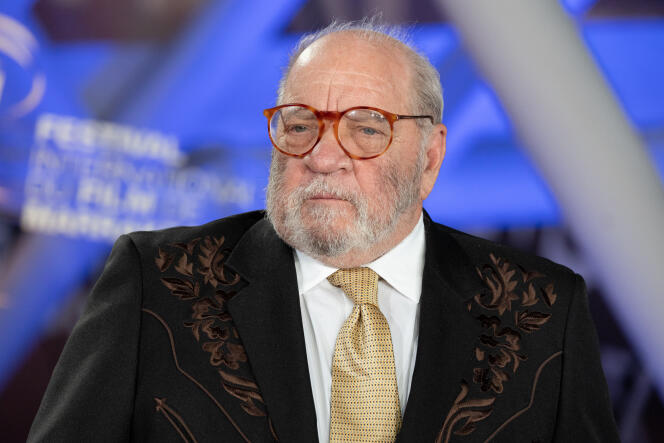


With his air of a gruff, facetious monk, Paul Schrader blended perfectly into the decor of the churches he visited during his stay in Italy in mid-December. Guest of honor at Laceno d'Oro, a high-flying festival that sees the whole of Italian cinema converge on Avellino, near Naples, the American screenwriter (Taxi Driver, 1976; Raging Bull, 1980) and filmmaker (American Gigolo, 1980; Witch Hun, 1994; Master Gardener, 2022) showed that, at 77 and despite frail health, he had lost none of his legendary outspokenness. A figure of the New Hollywood, alongside his friends Martin Scorsese, Brian De Palma and Steven Spielberg, he continues to blow a wind of freedom into an industry that is more closed than ever. On the sidelines of the festival, he spoke to Le Monde about his fears and plans.
This interview has been edited for length and clarity.
The picture editing is over. We have to do the music [by rock band Phosphorescent] and the mixes and the ADR [automated dialogue replacement]. I had a bad year healthwise. I ended up in the hospital three times with Covid, bronchial pneumonia. I'm 70%, 80% recovered. I think I should not be making a film about a young woman who is a sexual miscreant. I should be making a film about dying. Particularly with my health, if I am gonna make a film about dying, I better hurry up. And then Russell Banks got sick. [Schrader previously adopted a novel by Banks for the 1997 film Affliction.] He had written a novel 10 years ago called Forgone, about the death process. He called it his Ivan Ilyich [a reference to Leo Tolstoy's The Death of Ivan Ilyich]. Russell died on January 7, before I finished the script.
It will be on the market, yes! Cannes, of course, is going to have a shortage of American products because of the two strikes. The cast – Richard Gere, Uma Thurman, Jacob Elordi – should appeal to Thierry Frémaux. But, often, what should appeal to him frightens him. He's very unpredictable. But if he doesn't take it we could then go to Venice. I've had a lot of films at Venice. For films like mine, with tight budgets, the reception by big festivals is very important.
Yes, he fled the country in protest of the draft. And then he became a star in Canada. Now he's dying. We hear Gary being interviewed by former students. He wants to say something he's never said, basically that his whole life is a lie. I'll show you what Richard [Gere] looks like [he shows a photo on his phone]. He hasn't changed that much since American Gigolo (1980) [their previous collaboration]. It's the first time, since Mishima (1985), that I've made a puzzle box film, when your narrative is scattered pieces of memory and different formats. We shot the film in just 17 days. There's not a setup I shot that's not in the film. The first cut of the film was 90 minutes. The final cut of the film is 91. That's how I work. To the bone. The most formative film for me in my life is only 75 minutes long. It's Pickpocket [1959, by Robert Bresson].
You have 75% of this article left to read. The rest is for subscribers only.
